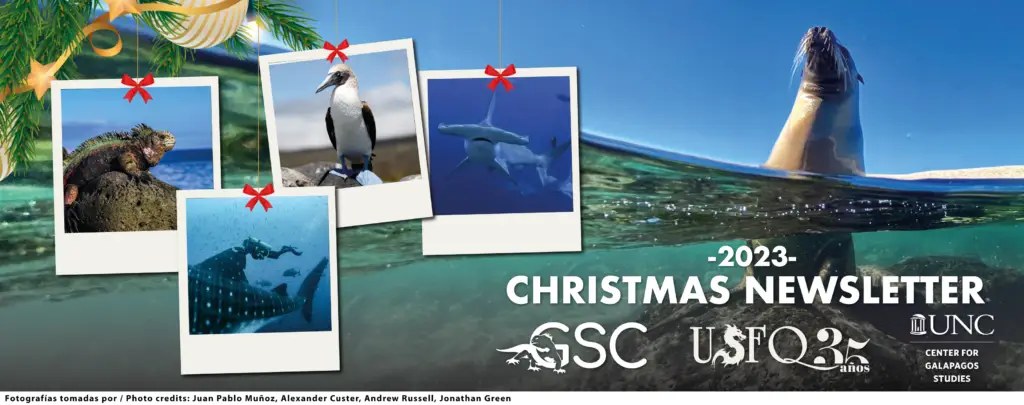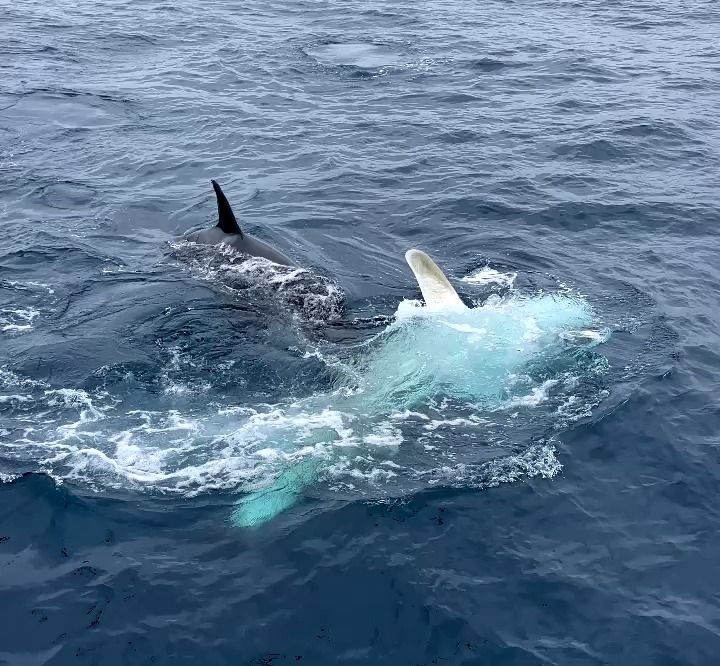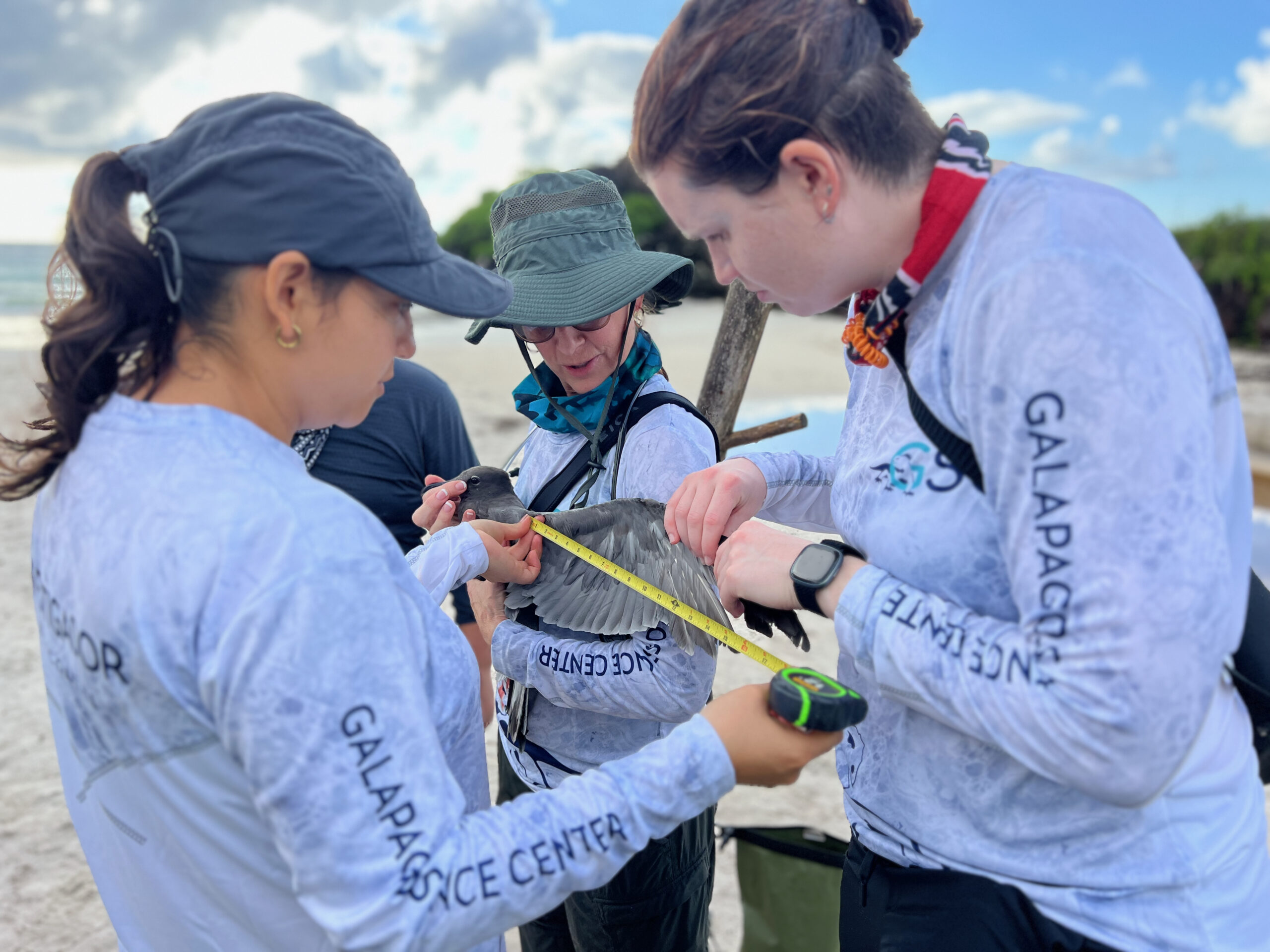The Galapagos Science Center (GSC) greets you and wishes you happy holidays. The GSC promotes local and international scientific collaboration for the benefit of global science and the Galápagos through research, education, and community outreach. We invite you to explore our work carried out during 2023.
The Scalesia microbiome: uncovering the microbial world that Darwin could not see
Scalesia is an endemic plant genus that has evolved to adapt to the extreme conditions of the Galápagos Islands. However, due to changes in climate and environment, it is essential to understand how these plants survive and diversify. The research project, led by Pieter van ‘t Hof, a biology professor at Universidad San Francisco de Quito (USFQ) and a researcher at GSC, studies the microbial communities associated with the Scalesia genus in the Galápagos Islands. The research team collected samples of microbial communities located in the roots and leaves to understand the role of bacteria, fungi, and other microorganisms in their growth and survival.
The “Galápagos Genetic Code (Barcode)” project uses non-invasive and laboratory sampling techniques to catalog the flora and fauna of the islands
The Galápagos Genetic Code (Barcode) project has brought together national and international scientists and the local community to catalog the biodiversity of these beautiful islands. The project employed 79 people affected by the COVID 19 pandemic, thus strengthening the local economy and promoting conservation. Preliminary results reveal findings such as the difference in soil microbiomes on different islands and the greater effectiveness of applying the “environmental DNA” methodology to detect species compared to other conventional methods.
Shark Day: 10 years celebrating the importance of protecting sharks and their habitat
Researchers, professors, students, and community members were part of the celebration of the 10th Shark Day in San Cristóbal. Sharks are essential for maintaining the balance of marine ecosystems. For a decade, this celebration has brought together the local community and marine life lovers to raise awareness about the conservation of sharks and their habitat.
USFQ and the Oceanogràfic Foundation launched a program to monitor the health of marine species in the Galápagos Islands
Between August and November, several veterinarians from the Oceanogràfic Foundation, in collaboration with USFQ, the GSC, and the Galápagos National Park (GNP), carried out health surveillance activities and knowledge transfer. The goal is to support the GNP in assessing the health status of emblematic species and to strengthen the local staff’s ability to respond to threats to marine fauna, through accompaniment.
UNC School of Social Work and USFQ deliver social work certification program for Galápagos locals
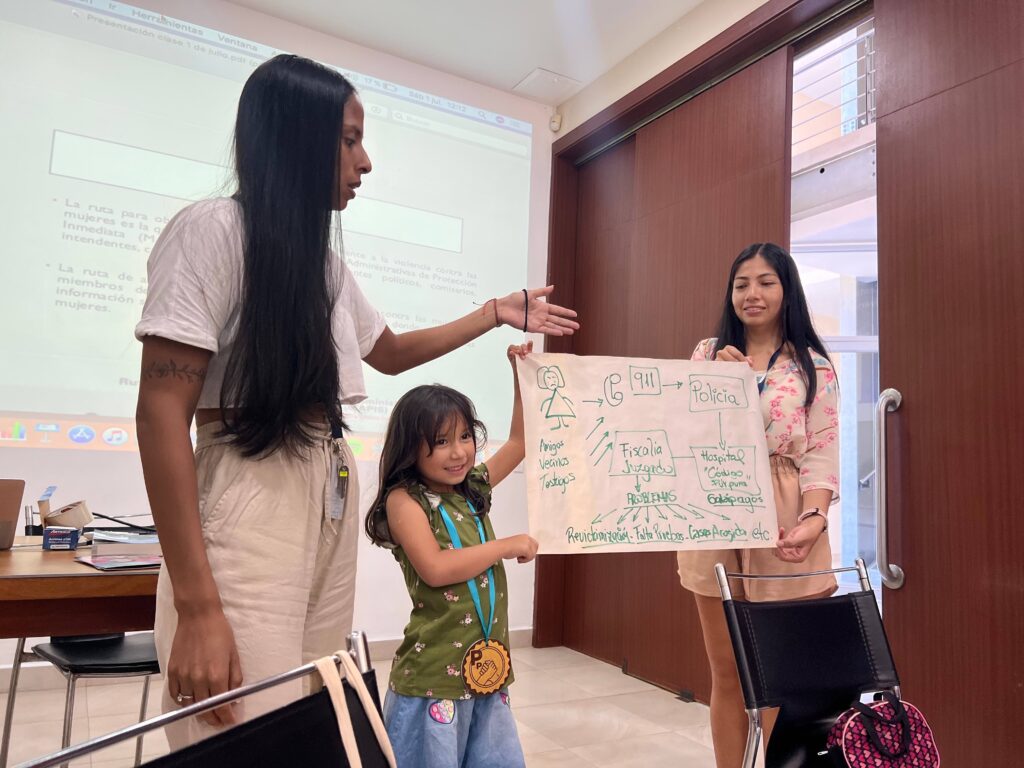
The University of North Carolina (UNC) School of Social Work and the USFQ launched a 12-week social work program for the Galápagos community to study and earn a certificate in community development and social work. The first edition of the program took place from June to September 2023, with more than 24 participants.
UNC Ph.D. student´s cutting-edge science helps conserve critically endangered scalloped hammerheads in the Galápagos
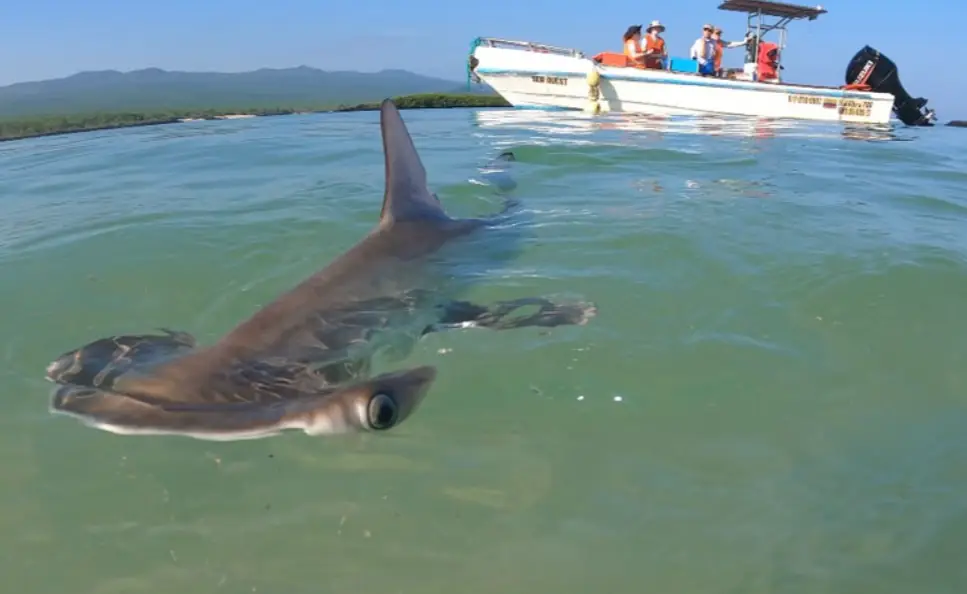
Savannah Ryburn, a Ph.D. student at UNC, uses forensic science of feces to discover the diet of sharks. She performs DNA analysis on the feces of scalloped hammerhead sharks in the Galápagos to determine their feeding up to the species level. Savannah has dedicated the last 5 years to this innovative research on the diet of these species.
UNC School of Nursing collaborates with local Galápagos hospital to address professional development needs
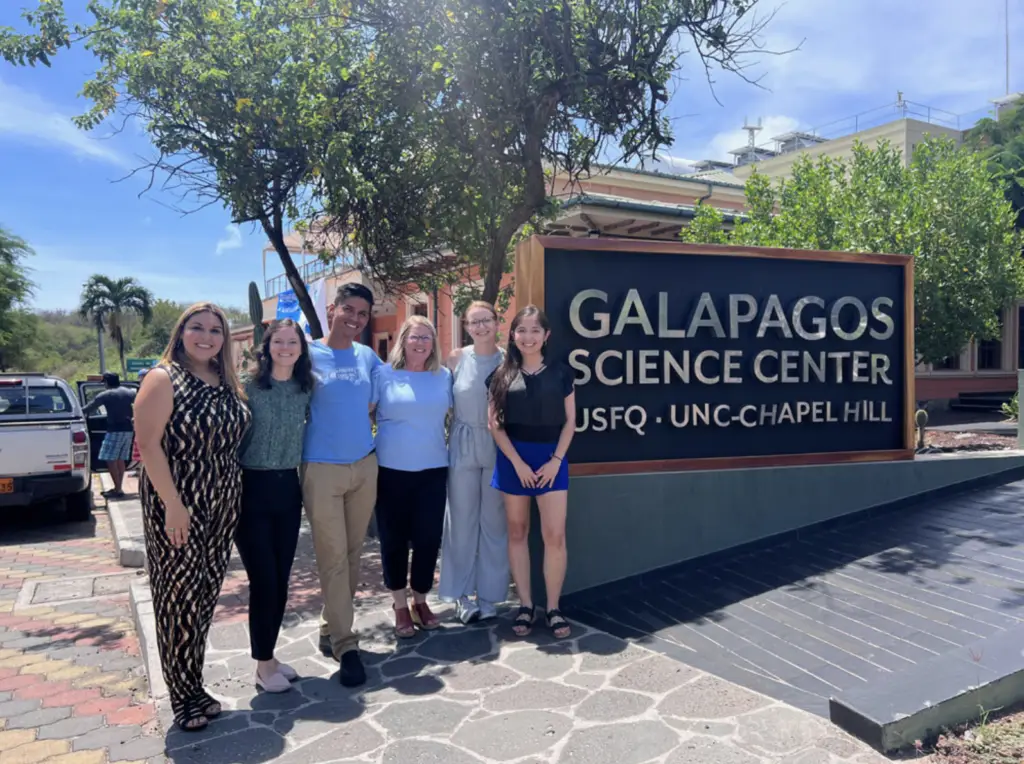
During the summer, the UNC School of Nursing sent professors and students who partnered with the Oskar Jandl Hospital in San Cristóbal, Galápagos to assess the needs of local nurses and develop a continuing education program taking into account both their needs and their resources.
International Galapagos Science Consortium

The GSC has the International Galapagos Science Consortium (IGSC), a network of international institutions that allows access to the services the GSC offers and fosters collaboration. The IGSC is made up of James Cook University (Australia), the University of the Sunshine Coast (Australia), the University of South Alabama (USA), and NC State University (USA). This year, over 15 international researchers from these institutions have published 18 papers on various topics. If you would like further information on how to become a Consortium member, please contact:
Carlos Mena (USFQ): cmena@usfq.edu.ec
Amanda Thompson (UNC): althomps@email.unc.edu
Happy Holidays
We would like to thank all the many partners of the GSC who have helped us achieve our goals this year. During 2024, we will continue to develop academic activities framed in our three fundamental axes of action: interdisciplinary scientific research, education through science, and community outreach. Until then, we wish you a happy holiday and look forward to continued collaboration!

